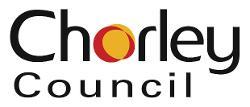Agenda item - Round Up of Pre-Meeting activity
Agenda item
Round Up of Pre-Meeting activity
Minutes:
Steve Winterson went through details of the briefing pack issued to members which covered locality based teams, multi-agency groups, Chorley areas of deprivation, and improvements to services. Observations from members were:
CCG - David McBride advised that due to patient choice, and circumstances, patients don’t always sit in particular localities, similar to the ones shown in the pack. Peer groups are being reviewed to take into account interactions with LCFT services.
LCC - Mel Ormesher advised that as part of the transformation at LCC the draft Corporate Strategy has been issued out to District Councils and partners (which is also available on the LCC Website), and this covers the approach to service delivery, which varies across services. Many services will be evidence based covering how people live, healthy lifestyles, employment, housing etc. It was noted that specific to Chorley, highlighted areas include young people, and elderly, although these are not in similar localities. Approach is similar to CCG in terms of integrated services at an individual level. LCC shifting from place based services, being more integrated, working to Marmot Review Principles.
Police - Charlie Cox advised that Police are reviewing structure looking at areas of risk and service demand, which will be considered from a number of data sources. Some elements are locality based, but some are Lancashire wide. The structure of neighbourhood teams will be part of this process, and the impact on local services needs to be understood.
Fire - Pete Ashby advised that the Fire and Rescue services are also going through transition, looking to double up the Southern and Central areas. Key elements include prevention teams, accidental fires, community safety, and high risk areas. It was noted that Fire and Rescue act as a supporting agency to service delivery.
LTHTR - Sarah James advised that LTHTR are looking at the provision of services in the district hospitals, how they are delivered and where they are located. The outcome of the review is expected April 2016. Chorley will be impacted by this review.
VCFS – Donna Hussain advised that the third sector she represents covers the Chorley area, and community development can happen in the localities covered in the brief, looking to cover gaps in services. There are a number of new initiatives coming through that impact Chorley which could be factored in.
LCFT – Jamie Waugh advised LCFT commissioned to deliver services on locality of Chorley, South Ribble and Greater Preston. There isn’t teams specific to residents of Chorley, but there are in-reach teams such as Integrated Neighbourhood Teams (INTs).
CBC – Rebecca Huddleston advised that the Council operate within the borough footprint, and that the Indices of Multiple Deprivation for 2015, which provides statistics on local deprivation, is due to be published in September. Vicky Willett added that the work of the Public Service Reform partnership is not restricted to the council boundaries, and there is certainly flexibility to work beyond the borough boundary to maximise outcomes.
Steve concluded that a number of organisations are in a process of transition, and that flexibility in developing service delivery is key as no structure is in a static state.
Analysis of data gathered on service demands will support strategic changes and members were asked what data is available that would be useful to have sight of.
LTHTR advised that data on Emergency Admissions regarding where Chorley residents are attending, and why, would be available.
Police also advised that ASB data would be readily available.
LCFT could show demand in community services, and the impact from the INTs.
CCG advised that data is readily available through Public Health profiles, and also HSCIC and Lancashire Mario Maps are two good intuitive sources of information, picking up areas of deprivation, assaults, education, and Emergency Department attendances.
It was also noted that outcomes from Healthier Lancashire and aligning the plans would be useful in the analysis.
Steve asked members for key priorities from organisations in terms of being involved in the Implementation Group:
Police – Corporate Priorities include Value for Money, Diversity and Neighbourhood Priorities. Community Safety Priorities are around violent crimes, CSE, ASB and vulnerable. Looking more closely on elements of ASB. Look to have a common pathway and look at multi-agency groups in place.
VCFS – Advised about working on Powers on Positive Requirement giving a different approach to enforcement activity, linking with positive actions such as signing up to alcohol services.
LCFT – Focus on interactions with individuals, and how organisations are involved in home visits such as Fire Safety Checks, Mental Health support, looking to work better together and have better communications at a locality based level. Need to have evidence to show that different ways of working are changing peoples outcomes. If this can be done effectively in Chorley then the model can be rolled out.
LTHTR – Agreed that the work of the Public Service Reform programme should aspire to cover a wide remit.
Fire – Key to have robust processes, but simple to refer people to help needed. Questions were raised on referring to new Wellbeing Worker service.
LCC – Mel advised that new service is going through transition from Helpdirect/Connect 4 Life to Lancashire Wellbeing Service, although any problems referring to service should be flagged up as referrals should not be delayed in being sent through. Stakeholder updates are available and these can be shared with the Implementation Group.
CBC – Advised it is important to include the new wellbeing service in terms of linking to services to integrated working.
Action Point – Wellbeing Stakeholder updates to be issued to the Implementation Group.
Action Point – Members to advise of any initiatives ongoing or planned which will make change happen. Note that this does not include any commissioned services.
Supporting documents:




